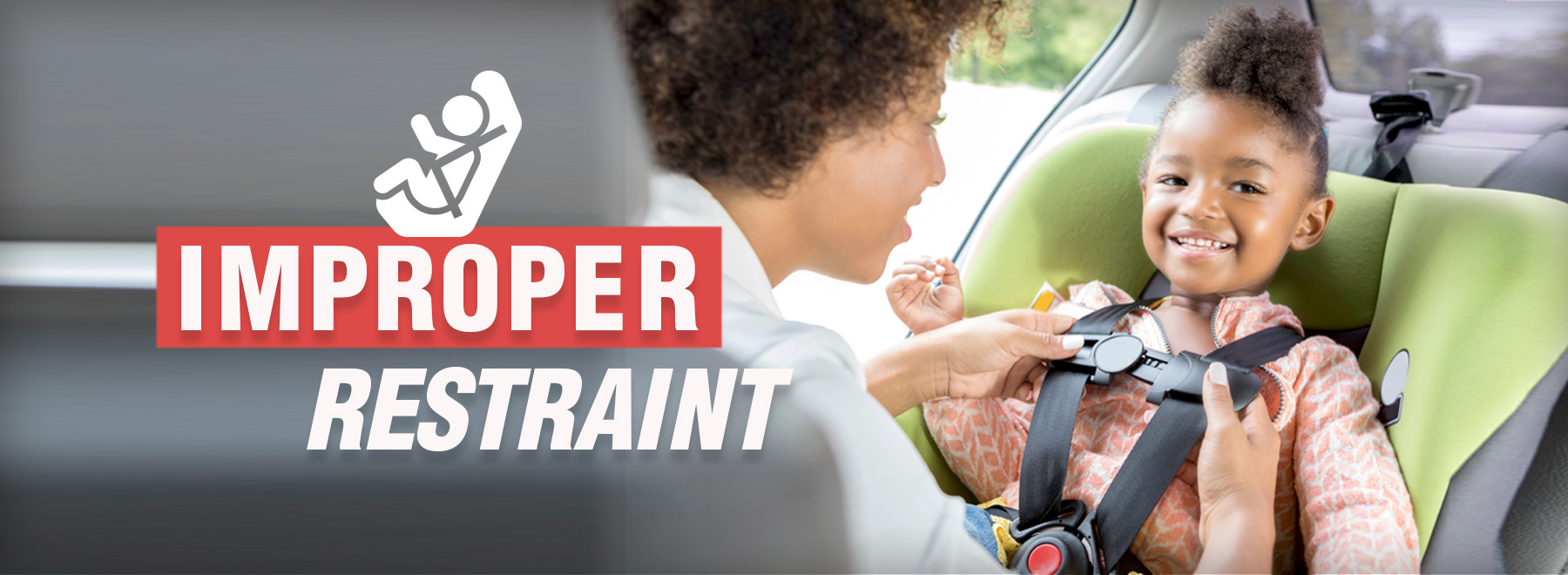How to limit your child's injury risk in automobile accidents
The risk of a child dying in a motor vehicle crash is higher in Mississippi than anywhere else in the country.
That’s according to data gathered by Safe Kids Worldwide. Per 100,000, the death rate for children in Mississippi was 3.86 from 2016-18. Other states with increased risk are New Mexico, at 3.39 per 100,000, and Alabama at 3.31.
The rate for the state of New York was 0.29 per 100,000, but other states had too few deaths of children in vehicle crashes to calculate the rate, according to a Safe Kids Worldwide fact sheet.
University of Mississippi Medical Center experts believe Mississippi’s high risk is from children either not being restrained at all or being improperly restrained when traveling.

Most injuries seen in the Children’s of Mississippi Emergency Department at the University of Mississippi Medical Center are from motor vehicle crashes, said Dr. Catherine Faulk, UMMC professor of pediatric emergency medicine.
“We see lots of children who were in no car seat or were improperly restrained with a seat belt when they should have still been in a car seat or booster seat,” she said.
Injuries from vehicle crashes are the leading cause of preventable deaths and injuries to children in the U.S. When correctly used, car seats can reduce a child's risk of death by as much as 71 percent, according to Safe Kids.
The injuries children sustain in car accidents can be severe, Faulk said.
“If a child is completely unrestrained during an accident, that child acts as a projectile. This leads to lots of head injuries and long bone fractures. Unrestrained passengers are also at high risk of being ejected from the car during the crash.”
The improper use of seat belts by children who are either wearing them incorrectly or are too young for them can result in abdominal injuries, including lacerations to the liver and spleen and bowel trauma, Faulk said.
Mississippi law requires children younger than 4 to ride in a car seat and those between 4 and 7 to use a child restraint system such as a booster seat. All drivers and front-seat passengers are required to wear seat belts in the state. A car seat violation in Mississippi comes with a $25 fine.

Elizabeth Foster, manager of Safe Kids Mississippi at Children’s of Mississippi, UMMC’s pediatric arm, said Mississippi’s law does not follow American Academy of Pediatrics guidelines on car seat safety for children.
“Mississippi’s law doesn’t even address children older than 7,” Foster said. “We refer to AAP child passenger safety recommendations when educating parents.”
AAP guidelines recommend:
- Using a rear-facing car seat from birth to 2 years old or following your car seat manufacturer’s instructions for upper weight limits;
- Using a forward-facing car seat from a minimum of 1 year old and 20 pounds to the upper weight and height limits of the car seat manufacturer;
- Sitting in a booster seat when the forward-facing car seat has been outgrown - this ranges from 40-80 pounds and up to 4 feet, 9 inches in height; and
- Wearing a seat belt when a child can sit in a vehicle seat with his or her knees bent and back against the back of the seat, with the lap seat belt over the hips and the shoulder seat belt over the middle of the shoulder.
- Children should not sit in the front seat of a car until they are older than 12, the AAP recommends.
Despite the law, many families in Mississippi do not understand the risk of a child riding unrestrained, Faulk said.
“They often transport more people in a vehicle than they can safely restrain,” she said. “We see older kids holding younger children and multiple kids strapped into a single seat belt.”
Families may use a car seat for babies but sometimes mistakenly move their children into a vehicle seat designed for adults too soon, she said.
“Sometimes the baby will be in a car seat, but no one else will be restrained,” Faulk said. “The infant will come in without a scratch, but the older kids are killed or severely injured.”
To learn more about car seat safety, visit Safe Kids Mississippi at safekids.org.
The above article appears in CONSULT, UMMC’s monthly e-newsletter sharing news about cutting-edge clinical and health science education advances and innovative biomedical research at the Medical Center and giving you tips and suggestions on how you and the people you love can live a healthier life. Click here and enter your email address to receive CONSULT free of charge. You may cancel at any time.



